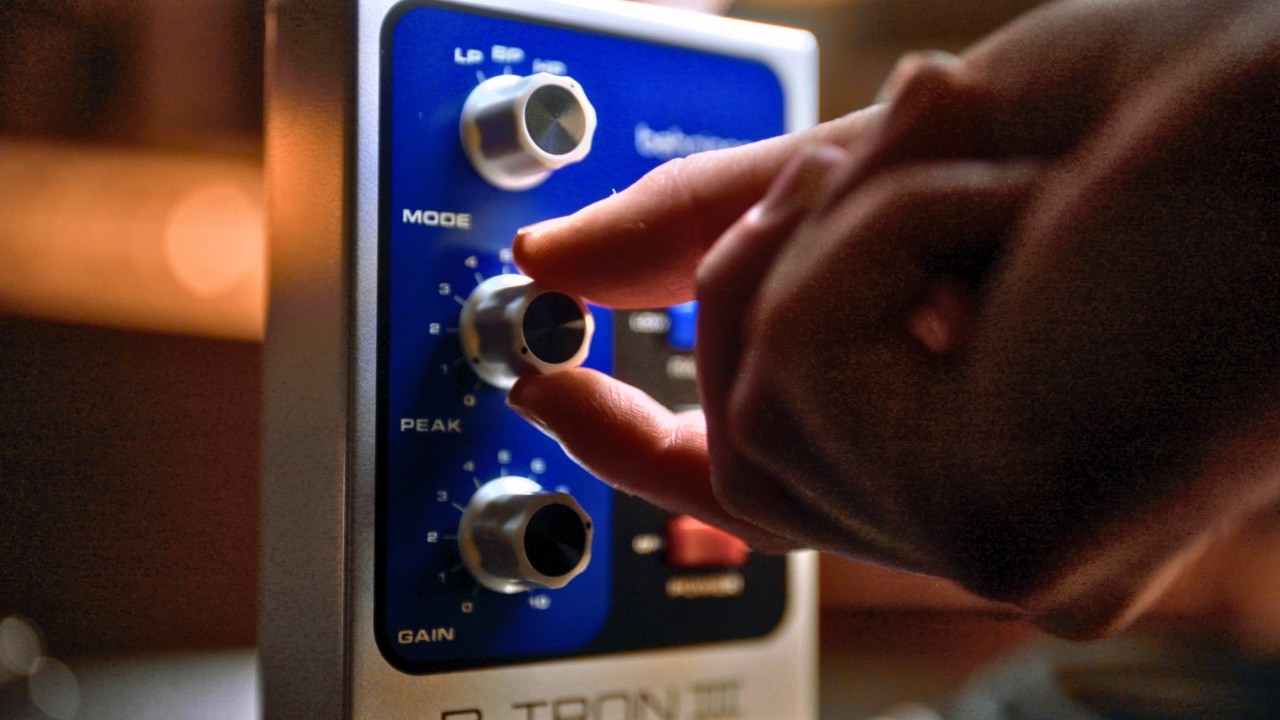Musitronics has seemingly called out Behringer, after the budget effects firm released a not-so-subtle $69 replica of its Mu-Tron III envelope filter.
In a scathing Facebook post the Mu-Tron maker – which has a number of other legendary effects in its catalog – has accused Behringer of copying its products, trade dress, and using slices of Mu-Tron history in its promotional videos.
Behringer pedals are, more often than not, affordable copies of celebrated pedals. Recent additions to its stock have included a Klon Centaur copy, and a rehash of a fuzz pedal adored by Eric Clapton, Jimmy Page, and Pete Townshend, both for under $70.
Those drops were followed by the B-Tron III – an envelope filter that does little to obscure the details of the pedal it is quite clearly copying.
For context, the Mu-Tron III was developed in the early 1970s and was one of the very first envelope-controlled filter pedals to hit the market. Over the years, it has been used by Bootsy Collins, Yes bass player Chris Squire, and Stevie Wonder.
Now, its maker isn’t best pleased that the budget firm has opted to muscle in on its niche turf, and create a replica that is so bold in its design.
“So a $2 billion German company has decided to copy a third Mu-Tron product,” Musitronics’ post begins. “It is being distributed, sight unseen, six month pre-order through a $31 billion investment firm which owns the largest online music store in the world.
“The pedal is most likely entirely made in China and will sell for less than the cost of what it takes us to produce here in the USA.”
The B-Tron III is available for just $69, and its extreme likeness to the Mu-Tron III has clearly ruffled a few feathers.
It’s not the first time Behringer has taken inspiration from Musitronics’ arsenal, either. The Dual-Phase from 2022 copied the Mu-Tron Bi-Phase’s homework, for example, while the Mu-Tron Octave Divider was cloned by the on-the-nose Octave Divider.
Of course, Behringer isn’t a lone wolf in the pedal recreation game. It’s hard to sift through the overdrive pedal market without being inundated with Klon-a-likes, ranging from Joe Bonamassa-backed redesigns to build-you-own kits.
Moreover, Behringer isn’t the only firm to take inspiration from Mu-Tron’s tonal magic either – Warm Audio, for instance, released a rather familiar-looking phaser pedal in 2023. Yet, for Musitronics’ money, it feels Behringer has taken things a step too far.

“This company has not only copied the trade dress (color schemes, fonts, labels, and verbiage), they have even assimilated the history of Musitronics into their videos as if was their own,” its post concludes. “Any suggestions?”
In regards to the accusation that Behringer is riding on the coattails of the Mu-Tron’s history, Musitronics’ own promo video leans heavily on the fact the pedal is a key part of Bootsy Collin’s sounds – “Without it, there ain’t no Bootsy”, the man himself is alleged to have once said.

However, Behringer makes no bones about the fact that the B-Tron III isn’t an original invention, even referring to “the company behind this legendary funky filter”. As such, Musitronics’ words have divided opinion in the comments section.
Among those inclined to disagree with the firm’s post, many are quick to highlight the lack of availability of the original pedal – only a Micro-Tron IV in Vintage Silver ($279) is currently in stock on its website – and a seeming lack of activity from the company. One commenter was surprised to hear the firm was still going, considering its quietness.
Visit Musitronics’ Facebook to read the full post.
GIPHY App Key not set. Please check settings